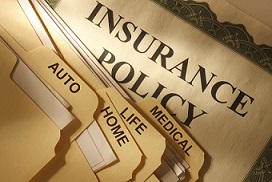 With 30-year fixed rate mortgages approaching historical lows of 3%, you may be thinking about refinancing an existing mortgage. But you better read the fine print before signing on the dotted line to avoid paying too much money. Here are some common mistakes homeowners make when refinancing their mortgage.
With 30-year fixed rate mortgages approaching historical lows of 3%, you may be thinking about refinancing an existing mortgage. But you better read the fine print before signing on the dotted line to avoid paying too much money. Here are some common mistakes homeowners make when refinancing their mortgage.
- Not shopping around. When looking to refinance a mortgage, many homeowners simply check a couple advertised rates and pick the lowest one. But there are many factors affecting the total cost of refinancing, so it pays to carefully look at not just rates but also terms and fees offered by different lenders. Remember that a mortgage with a lower rate and higher closing costs from one lender can ultimately cost more overall than a mortgage with a higher rate but lower closing costs from another lender.
- Saying yes to current mortgage loan forbearance. Loan forbearance occurs when your current lender allows you to delay making a payment or allows you to lower your payments. This is a common offer during the current pandemic. If you are considering refinancing in the future, think twice before taking advantage of this offer. Accepting a bank’s offer to skip a couple payments, even during a pandemic, may signal cash flow problems that could negatively affect your mortgage refinancing options.
- Not improving your credit score. The willingness of banks to lend you money at favorable rates is often contingent on your credit score. You must therefore know your current score and actively work to improve it. So don’t take out a new loan or credit card in the months leading up to refinancing. Also pay your bills on time and never use more than 15% to 20% of your available credit line on credit cards. By doing this you can vastly improve your interest rates and related closing fees.
- Not looking over the good faith estimate. Origination fees, points, credit reports and other fees are all included with closing costs when refinancing a mortgage. These fees aren’t finalized until you receive a good faith estimate (GFE). Any changes you notice to fees on the GFE compared to what you were originally told is a red flag. Compare the final refinancing document you’re about to sign with the rates and fees originally presented to you. Challenge any increases.
By being aware of refinancing pitfalls, you can actively eliminate any surprises and create a situation where multiple lenders are fighting for the right to lend you funds.


